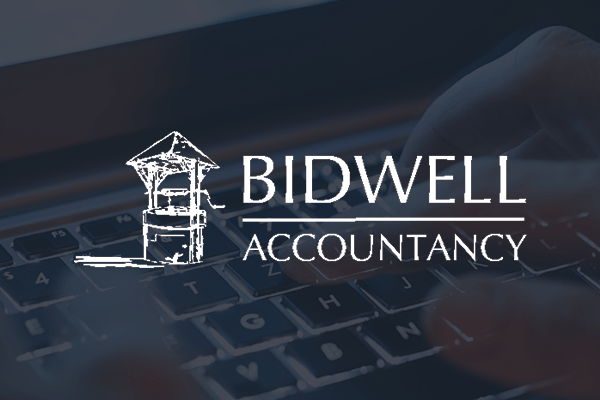SEISS Grants - HMRC sets out penalty for abuse
As the fourth self employment income support scheme (SEISS) ramps up for applications, HMRC has confirmed the penalty regime with harsh fines for abuse of the financial support
An overclaimed SEISS grant includes any amount of grant which the self employed were not entitled to receive or was more than the amount HMRC said the applicant was entitled to when the claim was made.
Overpayments must be notified to HMRC within 90 days of receipt of an SEISS grant.
Penalties can be charged up to 100% on the amount of SEISS grant overpaid, but there is a fairly long period for repayment so as long as overpayments are settled by the end of January 2022, fines will not be enforced.
When deciding the amount of any penalty, HMRC will take account whether the taxpayer knew they were entitled to the SEISS grant when they received it, and when it became repayable or chargeable to tax because the individual’s circumstances changed.
The HMRC guidance states: ‘If you knew you were not entitled to your grant and did not tell us in the notification period, the law treats your failure as deliberate and concealed. This means we can charge a penalty of up to 100% on the amount of the SEISS grant that you were not entitled to receive or keep.
‘If you did not know you were not entitled to your grant when you received it, we will only charge you a penalty if you have not repaid the grant by 31 January 2022.’
COMPLIANCE CHECK IN FULL
Self-Employment Income Support Scheme – receiving grants you were not entitled to
This factsheet contains information about the recovery of overclaimed Self-Employment Income Support Scheme grants. It also tells you about the penalties we can charge.
An overclaimed SEISS grant includes any amount of grant which:
· you were not entitled to receive
· was more than the amount HMRC said you were entitled to when you made your claim
Telling us about a grant you’ve overclaimed
We understand that mistakes can happen, particularly in the present circumstances. We’ve made it as easy as possible to pay back any amounts of SEISS grants you’ve received that you were not entitled to. If you received too much because you made an error in a claim, you must pay this back to us.
If you’ve overclaimed a SEISS grant and have not repaid it, you need to tell us within the notification period. The notification period ends on the latest of:
· 20 October 2020
· 90 days after you receive the SEISS grant you’re not entitled to
To find out how you can notify HMRC, see Tell HMRC and pay the Self-Employment Income Support Scheme grant back.
If you need help
If you have any health or personal circumstances that may make it difficult for you to deal with this matter, please tell the officer that’s contacted you. We’ll help you in whatever way we can. For more details, go to www.gov.uk/dealing-hmrc-additional-needs
Recovering overpaid amounts
Our priorities are supporting our customers and tackling deliberate non-compliance and criminal attacks. We will not be actively looking for innocent errors in our compliance approach. We’ll assess overpayments and charge penalties to support these priorities.
To recover the full amount of an overpaid grant, we can make a tax assessment. We’ll assess for the amount that you were not entitled to and have not repaid. If we make an assessment, we’ll write to you about it.
You must pay any amount we assess within 30 days of the assessment. We’ll charge interest on any late payments. We may also charge you late payment penalties if the amount remains unpaid 31 days after the due date.
If you are worried about making the payment you can call our Payment Support Service on 0300 200 3835 Monday to Friday, 8am to 4pm. You should still notify us that you have been overpaid.
If you have repaid the grant or we have made an assessment by the date you submit your tax return,
you do not need to include it in your Self Assessment tax return for 2020 to 2021.
If you have not repaid the grant and we have not made an assessment by the date you submit your
Self Assessment tax return for 2020 to 2021, you must include details of the overpaid SEISS grant.
We give more guidance in the tax return notes and help sheets.
Penalty for not telling us about the Income Tax charge
We may charge you a penalty if you do not tell us within the notification period that you’re chargeable to Income Tax on an overclaimed SEISS grant.
When deciding the amount of any penalty, we’ll take account of whether you knew you were entitled to the SEISS grant:
· when you received it
· when it became repayable or chargeable to tax because your circumstances changed
If you knew you were not entitled to your grant and did not tell us in the notification period, the law treats your failure as deliberate and concealed. This means we can charge a penalty of up to 100% on the amount of the SEISS grant that you were not entitled to receive or keep.
If you did not know you were not entitled to your grant when you received it, we will only charge you a penalty if you have not repaid the grant by 31 January 2022.
For more information on how we work out a failure to notify penalty, please read CC/FS11a, ‘Coronavirus support payments-penalties for failure to notify’. Go to www.go.uk and search for ‘CC/FS11a’.
Appeals
If we make an assessment to recover a grant for which you were not entitled to or were overpaid, or if we charge you a penalty, we’ll write and explain how we arrived at the decision and the amount of the tax or penalty due.
If you do not agree with the decision or the amount due, you may appeal within 30 days from the date the notification was issued to you.
For detailed guidance on appeal rights, go to www.gov.uk and search for ‘HMRC1’ HM Revenue and Customs decisions - what to do if you disagree.
Provisions specific to partners and partnerships
Partners receiving a grant that they were not entitled to and retaining the grant
If an individual partner receives a grant they were not entitled to and keeps the entire amount:
· we will assess only that partner on the amount of the grant that they are not entitled to
· if the amount is not repaid and we have not issued an assessment, that partner must report the overpaid amount separately in their Self Assessment tax return for 2020 to 2021
· if they fail to notify us of a grant that they were not entitled to within the notification period, that partner alone will be charged a penalty
Partners receiving a grant that they were not entitled to and paying it over to the partnership
If the amount of grant that the partner was not entitled to is not kept by the individual partner, but instead paid over to the partnership, we may assess any of the partners to collect the amount due as Income Tax. The partners will be jointly and severally liable for the amount assessed.
If a partner has repaid the grant or we have made an assessment by the date they submit their tax return, they do not need to include it in their Self Assessment tax return for 2020 to 2021.
We may assess any partner for the whole amount of a single penalty chargeable for a failure to notify. However, partners are jointly and severally liable to a failure to notify penalty charged in relation to a partnership.
If any partner knew that they were not entitled for a grant which was paid into the partnership:
· all other partners are taken to have known as well
· the failure to notify penalty will be calculated using the percentage ranges for deliberate and concealed behaviour
· any penalty will be based on the amount any of the partners were not entitled to receive and did not repay by the last day of the notification period
· we may still charge a penalty if any of the partners repay the amount of grant not entitled to after the end of the notification period
If none of the other partners knew that the partner receiving the grant was not entitled:
· and the behaviour was deliberate and concealed, all partners will be jointly and severally liable to a penalty for deliberate and concealed behaviour
· and the behaviour was deliberate but not concealed, all partners will be jointly and severally liable to a penalty for deliberate but not concealed behaviour
· we will not charge a failure to notify penalty if any of the partners repays the amount of grant subject to the 100% tax charge by 31 January 2022
Any partner may appeal against a failure to notify penalty on behalf of the other members of the partnership.

Unit 157, Milton Keynes Business Centre,
Foxhunter Drive, Milton Keynes,
Buckinghamshire, MK14 6GD
Bidwell Accountancy





